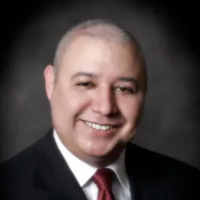Lake Village DUI-DWI Lawyer, Indiana
Paul Stracci
✓ VERIFIEDCriminal, Accident & Injury, White Collar Crime, DUI-DWI, Felony
Criminal Defense Attorney and Trial Lawyer at Federal and State levels
Paul Stracci is a uniquely experienced criminal trial attorney who has had remarkable success in the courtroom. He successfully defended his first mu... (more)
Alejandro Dominguez
✓ VERIFIEDDUI-DWI, Criminal
I am Alex Dominguez and I provide the highest quality, cost-efficient legal representation possible. I am an experienced trial lawyer representing cli... (more)
Alison Louise Benjamin
DUI-DWI, Personal Injury, Civil & Human Rights, Federal Appellate Practice, Federal
Status: In Good Standing
FREE CONSULTATION
CONTACTSusan Kozlowski
Divorce & Family Law, DUI-DWI, Traffic, Accident & Injury, Criminal
Status: In Good Standing Licensed: 28 Years
FREE CONSULTATION
CONTACTJohn Maksimovich
Felony, DUI-DWI, RICO Act, White Collar Crime, Traffic
Status: In Good Standing Licensed: 44 Years
FREE CONSULTATION
CONTACT


